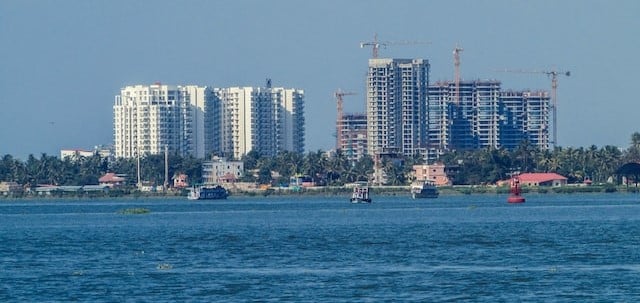Tracing the Rich History of a Bustling Commercial Hub
Ernakulam, also known as Kochi, is a bustling port city situated on the southwest coast of India. It is the commercial and financial capital of the Indian state of Kerala and is home to a rich and diverse cultural history. Ernakulam is a melting pot of various cultures, and its history dates back to the pre-colonial era. In this article, we will explore the history of Ernakulam, tracing its evolution from a small fishing village to a bustling metropolis.
The early history of Ernakulam is intertwined with the history of the Cochin Kingdom, which dates back to the 15th century. The kingdom was ruled by the Cochin royal family and was a significant trade center for spices, coir, and other commodities. The region was also frequented by foreign traders, including the Portuguese, Dutch, and British.
The Portuguese arrived in Kochi in 1500 AD and established a settlement on the island of Fort Kochi. They built a fort and a chapel, which still stands today, making it one of the oldest European churches in India. The Dutch took control of Kochi in 1663, and the British followed suit in 1795. The British developed Kochi as a commercial center and established the Cochin Port Trust in 1928, which played a vital role in the city’s economic growth.
During the pre-independence era, Ernakulam played a crucial role in India’s freedom struggle. The city was home to many freedom fighters, including K.P. Kesava Menon, K. Kelappan, and V.K. Krishna Menon. The Salt Satyagraha was organized in Ernakulam in 1930, and many leaders were arrested, including K. Kelappan, who went on a hunger strike in prison.
After India’s independence in 1947, Ernakulam continued to thrive and grew into a bustling metropolis. The Cochin Port Trust was expanded and modernized, making it one of the busiest ports in India. The city also witnessed a boom in the construction industry, with many high-rise buildings and infrastructure projects coming up.
Ernakulam has always been a center of art and culture, and the city is home to many landmarks and monuments that showcase its rich cultural heritage. The St. Francis Church in Fort Kochi is one of the oldest European churches in India and was built in the early 16th century. The Paradesi Synagogue, built-in 1568, is the oldest active synagogue in the Commonwealth of Nations. The Mattancherry Palace, also known as the Dutch Palace, is a 16th-century palace built by the Portuguese and renovated by the Dutch.
In recent years, Ernakulam has emerged as a hub of information technology and healthcare, attracting professionals and investors from around the world. The city is home to many IT parks, including the Infopark, which houses several global IT companies. Ernakulam is also a leading healthcare destination in India, with many hospitals and medical centers providing world-class facilities and services.
In conclusion, Ernakulam’s rich cultural heritage and history make it a unique and vibrant city. From its ancient roots as a small fishing village to a bustling metropolis, Ernakulam has witnessed many changes and played a significant role in India’s history. The city’s cultural landmarks, monuments, and institutions are a testament to its past, while its modern infrastructure and emerging industries point to a bright future. Ernakulam continues to be a hub of trade, commerce, and culture and is a must-visit destination for anyone interested in exploring India’s rich history and vibrant culture.
